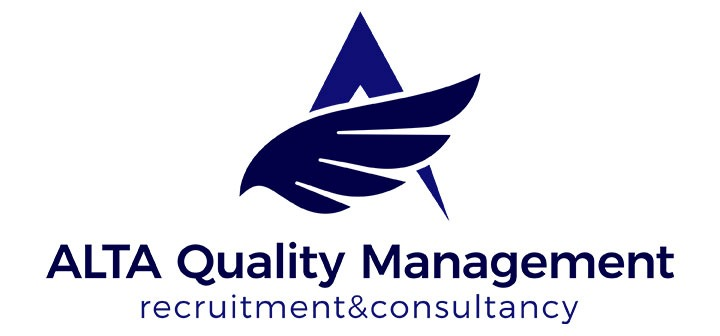
ADHD Symptoms In Female Adults
Add a review FollowOverview
-
Founded Date 31 december 1954
-
Posted Jobs 0
-
Viewed 4
Company Description
20 Fun Facts About Female ADHD

Understanding Adult Female ADHD Symptoms
Attention Deficit Hyperactivity Disorder (ADHD) is often perceived as a condition predominantly impacting kids, leading to a systemic misunderstanding of its symptom in the adult years, especially amongst women. While ADHD has historically been underdiagnosed and undertreated in females, awareness of adult female ADHD is increasing. This post delineates the symptoms of ADHD particularly in adult women, the obstacles they deal with, and the value of recognizing and attending to these symptoms.
Overview of ADHD
ADHD is a neurodevelopmental disorder identified by symptoms of inattention, hyperactivity, and impulsivity. It is important to keep in mind that ADHD manifests in a different way across genders and age groups. Women may exhibit subtler symptoms, which can lead to a later diagnosis compared to guys.
Common Symptoms in Adult Females
In order to record the nuanced methods which ADHD can manifest in adult females, the following sections outline typical symptoms categorized into negligence, hyperactivity-impulsivity, and psychological obstacles.
1. Inattention Symptoms
Negligence in adult women with ADHD might consist of:
- Difficulty sustaining attention: Women might struggle to focus on tasks, specifically those that are recurring or dull.
- Poor organization: A tendency to be disordered in day-to-day activities, causing missed out on due dates and visits.
- Easily sidetracked: Women might discover it challenging to ignore diversions in their environment.
- Lapse of memory: Forgetting crucial tasks, such as grocery lists or appointments, prevails.
- Difficulty completing jobs: Starting several projects simultaneously but struggling to complete them.
2. Hyperactivity-Impulsivity Symptoms
Hyperactivity may present in a different way in women, often appearing less obvious but still impactful. Symptoms include:
- Restlessness: Persistent sensations of being uneasy or fidgety, even in a seated position.
- Impulsivity: Making hasty choices without thinking about the consequences, which can impact individual and professional relationships.
- Talking exceedingly: Engaging in conversations at length or interrupting others unintentionally.
- Trouble relaxing: Always feeling the requirement to be hectic or participated in an activity.
3. Emotional Challenges
Women with ADHD might experience increased psychological reactions, resulting in various challenges:
- Mood swings: Fluctuations in state of mind that can be intense and unpredictable.
- Low self-confidence: A history of unmet expectations may result in feelings of insufficiency.
- Stress and anxiety and anxiety: Many women with ADHD likewise experience co-occurring mental health conditions.
The mix of these psychological difficulties can significantly impact relationships, profession, and self-image.
Difficulties in Identification and Diagnosis
Detecting ADHD in adult females positions unique obstacles, such as:
- Social Expectations: Societal norms typically push women to maintain a level of organization and calm that may mask their symptoms.
- Comorbidity: ADHD frequently coexists with other mental health problems, which may make complex medical diagnosis and treatment.
- Variability in Symptoms: Symptoms can differ extensively from one person to another, resulting in a misunderstanding of what ADHD looks like in women.
Significance of Recognition and Treatment
Recognition and proper medical diagnosis of adult female ADHD are important for enhancing the lifestyle. The following points illustrate why:
- Enhanced Understanding: Acknowledging ADHD can cause self-compassion, as women understand their experiences are shared by others.
- Reliable Management: Armed with a diagnosis, women can pursue reliable treatments, such as treatment and medication.
- Improved Relationships: Understanding one’s ADHD symptoms can lead to better interaction and management techniques in relationships.
Treatment Options
Reliable treatments for ADHD in adult women can encompass a mix of medication, therapy, and way of life changes:
- Medications: Stimulants or non-stimulants can be prescribed to assist handle symptoms.
- Cognitive Behavioral Therapy (CBT): This kind of therapy can help women develop coping methods and behavioral awareness.
- Training and Support Groups: Joining support groups can offer a sense of community and understanding, minimizing sensations of seclusion.
| Treatment Option | Description |
|---|---|
| Medication | Stimulants and non-stimulants recommended to manage core ADHD symptoms. |
| Cognitive Behavioral Therapy | A therapy focusing on altering negative idea patterns and behaviors. |
| Coaching | Individualized coaching to assist handle jobs and set attainable objectives. |
| Mindfulness Practices | Techniques such as yoga and meditation to aid with focus and emotional policy. |
FAQs about Adult Female ADHD Symptoms
Q: Can adult women develop ADHD late in life?A: Yes,
ADHD can be identified in adulthood, typically highlighted by life changes such as new duties in work or household.
Q: Are there differences in ADHD symptoms in between men and women?A: Yes, women may display more subtle symptoms like inattentiveness and psychological struggles, while men may reveal more hyper habits. Q: What can I do if I believe I have adult ADHD?A: It’s essential to speak with a healthcare specialist for an extensive examination and discuss prospective treatment options. Q: How can loved ones support women with ADHD?A: Support can consist of comprehending their symptoms, encouraging treatment, assisting with company, and practicing perseverance. Understanding adult Female ADHD Symptoms ADHD is important in promoting awareness, reducing stigma, and allowing women to seek assistance. With proper acknowledgment of
symptoms and reliable treatment, women can manage their ADHD efficiently, resulting in enhanced productivity, much better relationships, and enhanced psychological wellness. The journey towards understanding and treatment is continuous, however empowering women with understanding about ADHD is a considerable advance.

